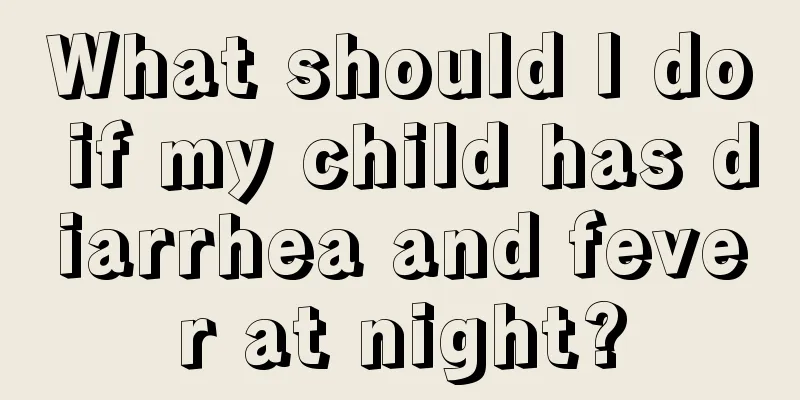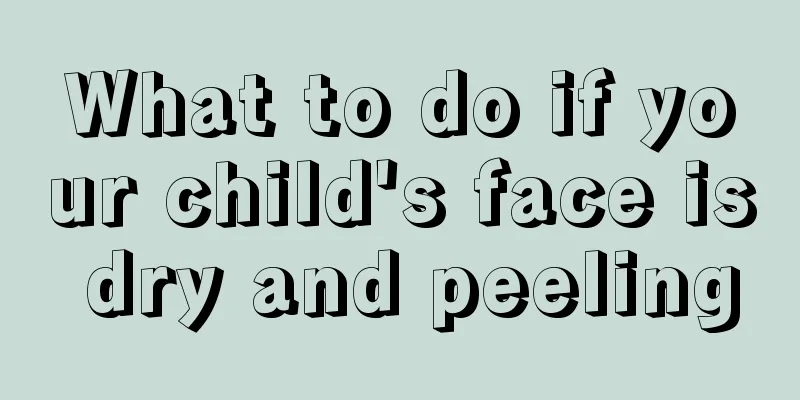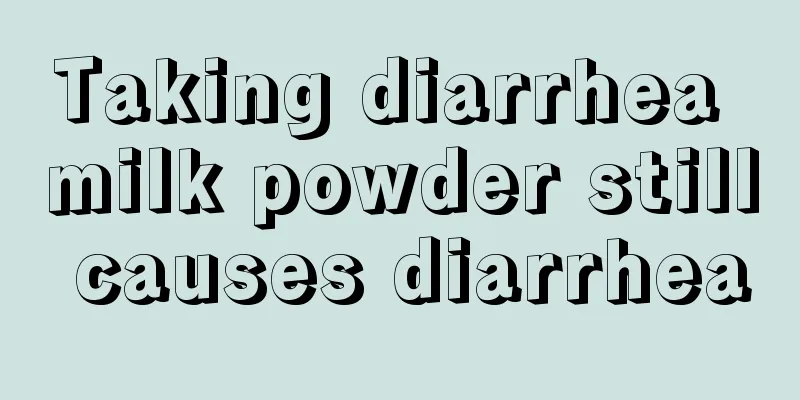What should I do if my child has diarrhea and fever at night?

|
Fever and diarrhea are very common on weekdays, but if they happen at night and happen to children, it becomes more troublesome. When babies have diarrhea, they feel uncomfortable and parents feel distressed when they see it. Moreover, children sometimes don’t know that they have a fever, and they cannot actively tell their parents, especially at night. Babies who are soundly sleeping have no idea that they have a fever, so parents need to pay extreme attention. The early symptoms of a child's fever are red face, hot forehead, cold hands and feet, and poor spirits. In addition, they may also have runny nose, sore throat, and cough. Gastroenteritis is manifested by abdominal pain, vomiting, and diarrhea. Urinary tract infection may cause frequent urination, painful urination, and low back pain. The accompanying symptoms of various systems in infants are atypical, and may only include anorexia, vomiting, and diarrhea. There are many diseases that cause fever. Parents should pay attention to the pattern of their children's fever and accompanying symptoms, and go to the hospital for examination in time and receive early treatment. When your child experiences the above symptoms at night, don't panic. You can take some emergency measures at home to relieve the symptoms. Physical therapy such as cooling patches or ice compresses can be used to reduce fever, or children's cooling tablets can be taken in appropriate amounts. When the body temperature exceeds 39°C, you should stay in bed, open the blanket or loosen the clothes to expose the skin, place an ice bag or a cold, wet towel on the head, and go to the hospital for diagnosis and treatment as soon as possible. When babies under six months old have a high fever, they generally do not receive antipyretic injections or take antipyretic medicine. The best way to reduce the temperature is a warm water bath. Regardless of whether the fever subsides after emergency treatment, the child should be taken to the hospital for treatment. When a child has diarrhea, first give the child some antidiarrhea pediatric medicines available at home and observe the baby's condition. If the condition is serious and accompanied by vomiting, go to the hospital for medical treatment in time. Children's fever and diarrhea must not be taken lightly. Generally, you must keep some common pediatric medicines for antipyretic and antidiarrhea at home. In an emergency at night, give the child the medicine first, and then go to the hospital for treatment as soon as possible. In addition, parents are reminded to detect their babies’ problems as early as possible. I hope the methods I compiled can help you. |
<<: Why does my child sweat while sleeping at noon?
>>: How to make pumpkin porridge for children?
Recommend
How to cook baby clams
As a mollusk, clams have very delicious meat and ...
Reasons why breastfed babies have less bowel movements
In fact, it is very difficult to take care of you...
What to do if children have tooth decay and toothache
Children's health is of particular concern to...
Is it possible to see blood in children's urine?
Hematuria is a common phenomenon in normal times....
Is it okay for a newborn baby not to cry?
When babies are born, most of them will cry loudl...
Reasons for decreased appetite in two-month-old babies
In daily life, many mothers have found that many ...
How to pay attention to children's eye hygiene
In recent years, many children have been found to...
Diet therapy for children's lung heat cough
In fact, every couple hopes that their children a...
What is Peak Bone Growth?
When every child is developing bones, parents are...
How long is it best for newborns to be exposed to the sun?
The arrival of a baby makes many people very happ...
What to do if a child has a fever caused by bacterial infection
Some parents become very nervous when they find t...
What causes toothache in children?
For adults, toothache is like a life-threatening ...
Can children's sputum heal itself?
Every parent hopes that their children can grow u...
Side effects of rabies vaccination for children
Children are young, and side effects are inevitab...
Children grow new teeth without losing old teeth
What happens when a child grows new teeth but the...









